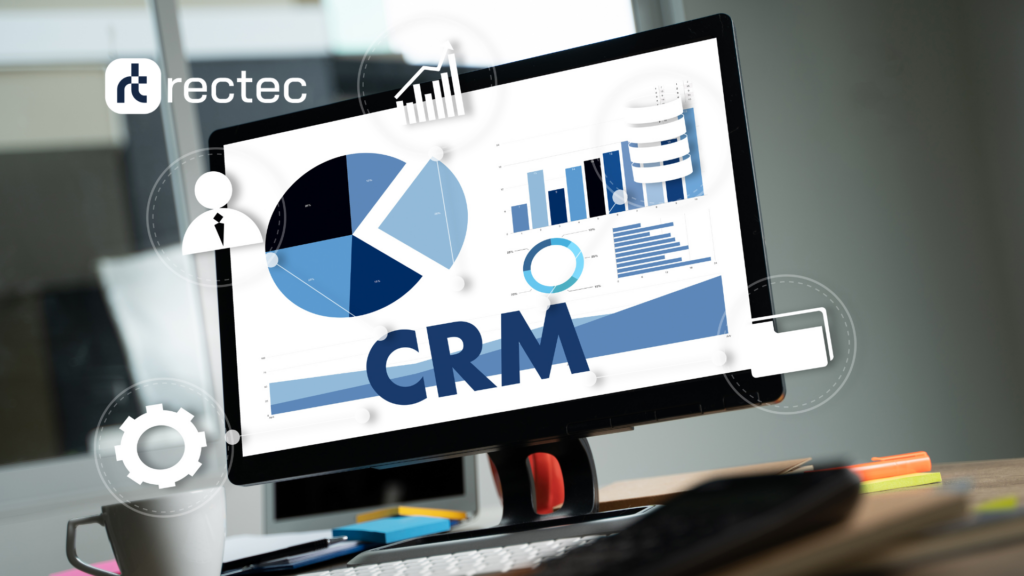In the ever-evolving landscape of recruitment, maintaining a competitive edge requires leveraging the latest technology. For recruitment agencies, one of the most pivotal tools in this tech arsenal is their Recruitment CRM system. Understanding what a Recruitment CRM is, how it functions, and its benefits can significantly enhance your recruitment process, enabling you to stay ahead of the curve.
Understanding Recruitment CRM
A Recruitment CRM is a specific solution designed to streamline and optimise the recruitment process. Unlike generic CRM systems, Recruitment CRMs are tailored specifically for the recruitment industry, offering features that cater to the unique needs of recruiters. These systems help agencies manage their interactions with both candidates and clients, enhancing the efficiency and effectiveness of the recruitment process.
Key Features of a Recruitment CRM
- Candidate Management: At its core, a Recruitment CRM helps agencies manage candidate information seamlessly. From the initial application to the final placement, every interaction with a candidate is tracked and recorded. This includes managing resumes, tracking communication, scheduling interviews, and maintaining detailed candidate profiles.
- Client Management: Just as with candidates, Recruitment CRMs allow agencies to manage their client relationships. This includes tracking client requirements, maintaining detailed records of past and current job orders, and facilitating clear and efficient communication.
- Automation: Automation is a critical feature in modern Recruitment CRMs. It can handle repetitive tasks such as sending follow-up emails, scheduling interviews, and updating candidate statuses. This frees up recruiters to focus on more strategic tasks, such as engaging with candidates and clients.
- Analytics and Reporting: Data-driven decision-making is a significant advantage provided by Recruitment CRMs. These systems offer robust analytics and reporting tools that help agencies track key performance indicators (KPIs), such as time-to-fill, source of hire, and conversion rates. This data is invaluable for identifying areas for improvement and making informed strategic decisions.
- Integration Capabilities: A good Recruitment CRM will integrate seamlessly with other essential tools and platforms, such as job boards, social media, and applicant tracking systems (ATS). This integration ensures a smooth flow of information and reduces the risk of data silos.
- Customisation: Recruitment agencies have unique workflows and processes, and a one-size-fits-all solution is rarely effective. Recruitment CRMs often offer customisation options, allowing agencies to tailor the system to their specific needs. This can include custom fields, workflows, and reporting templates.
Benefits of Using a Recruitment CRM
- Enhanced Efficiency: By automating routine tasks and centralising information, Recruitment CRMs significantly enhance the efficiency of the recruitment process. Recruiters can focus on high-value activities such as candidate engagement and relationship building, rather than administrative tasks.
- Improved Candidate Experience: A Recruitment CRM ensures that candidates receive timely and personalised communication. This improves the overall candidate experience, increasing the likelihood of attracting top talent and building a positive employer brand.
- Better Client Relationships: With detailed client records and efficient communication tools, Recruitment CRMs help agencies build and maintain strong client relationships. This leads to increased client satisfaction and repeat business.
- Data-Driven Decision Making: The analytics and reporting capabilities of Recruitment CRMs provide valuable insights into the recruitment process. Agencies can track their performance, identify trends, and make data-driven decisions to enhance their strategies and operations.
- Scalability: As recruitment agencies grow, their processes and workflows become more complex. Recruitment CRMs are designed to scale with the agency, accommodating increasing volumes of candidates and clients without compromising on performance.
Choosing the Right Recruitment CRM
Given the myriad of options available, choosing the right Recruitment CRM can be a daunting task. Each system comes with its own set of features, strengths, and weaknesses, and what works for one agency might not be suitable for another.
This is where Rectec Compare comes into play. Rectec Compare is a comprehensive comparison service specifically designed to help recruitment agencies find the perfect Recruitment CRM. By offering detailed comparisons of various CRM systems, Rectec Compare ensures that agencies can make informed decisions based on their specific needs and requirements.
Rectec Compare provides an unbiased analysis of different Recruitment CRMs, taking into account factors such as functionality, user experience, and cost. It saves agencies the time and effort of conducting their own research, providing them with all the information they need to choose the best CRM for their operations.
Conclusion
In today’s competitive recruitment industry, leveraging the right technology is crucial for success. A Recruitment CRM is more than just a tool; it’s a strategic asset that can significantly enhance the efficiency and effectiveness of your recruitment process. By automating routine tasks, centralising information, and providing valuable insights through analytics, a Recruitment CRM empowers agencies to build stronger relationships with both candidates and clients.
When it comes to selecting the right Recruitment CRM, Rectec Compare is the ultimate resource. With its comprehensive and unbiased comparisons, it guides agencies in making the best choice for their unique needs, ensuring they have the tools necessary to thrive in the competitive world of recruitment.
Embrace the power of a Recruitment CRM and transform your recruitment process today.

